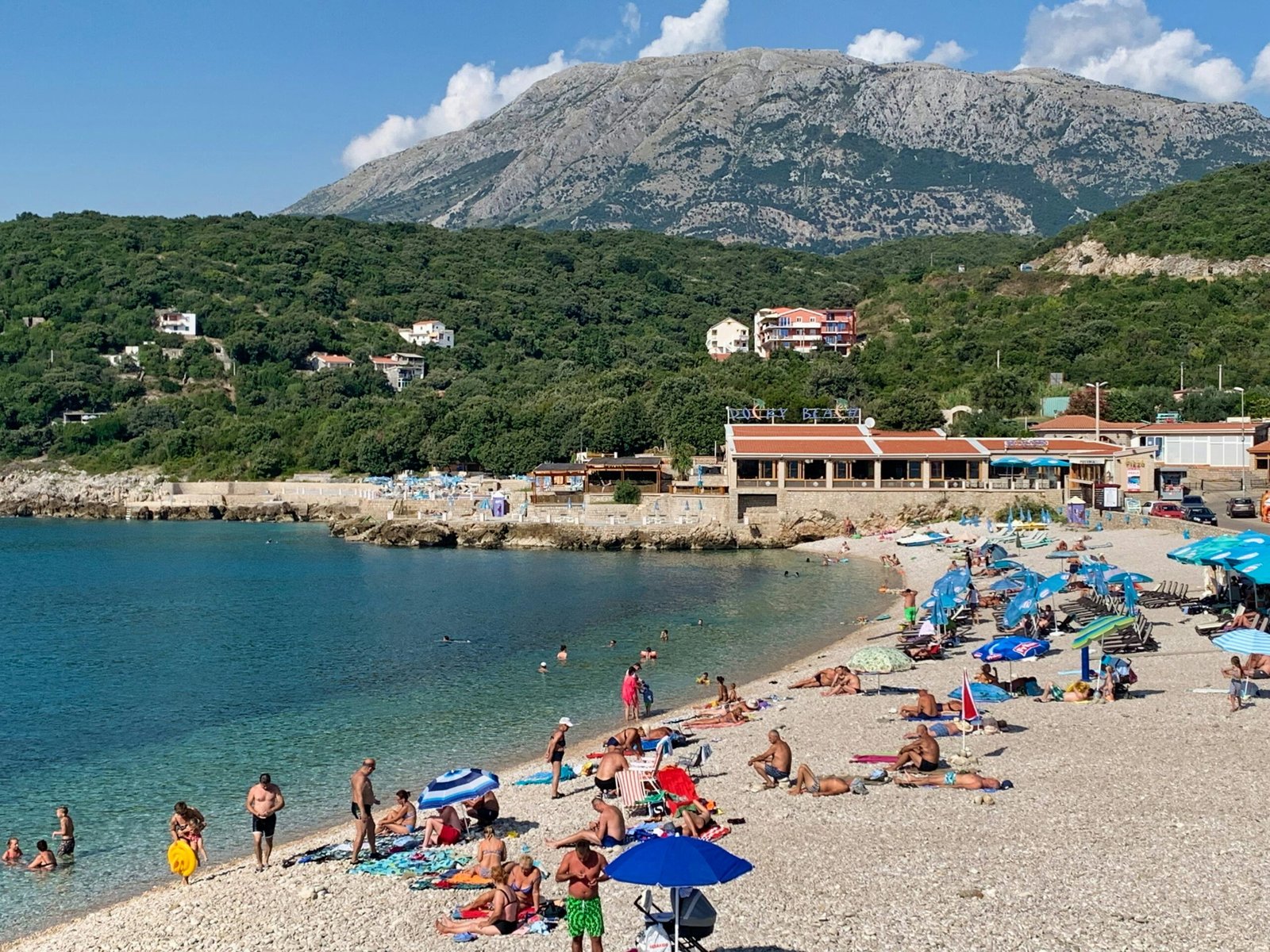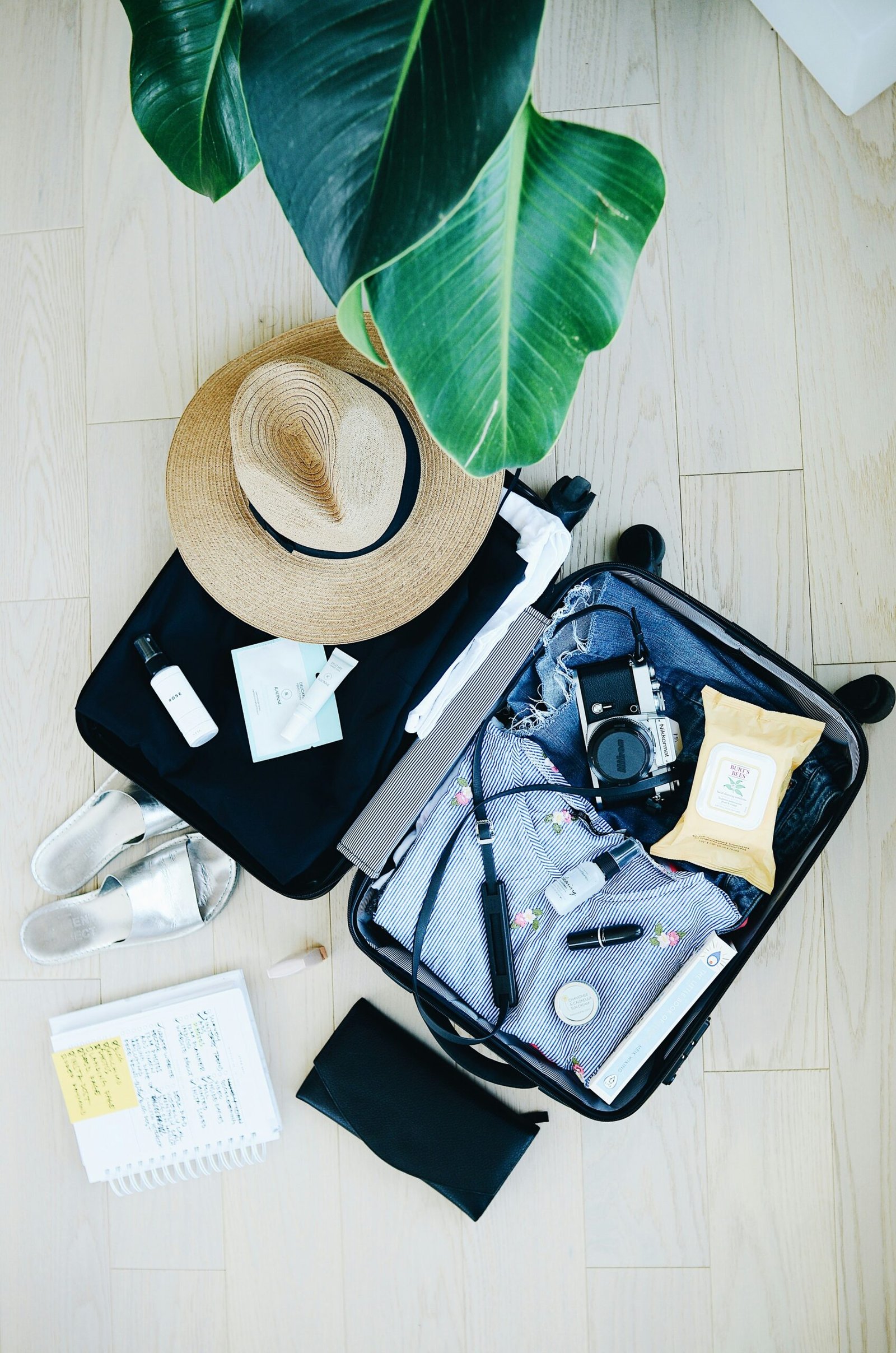Making new like minded friends goes a very long way in our various individual life, especially when such friendship tends to contribute positively to our various individual goals. In this article we are going to review some of the major factors to be considered while making and meeting new friends on a tour or while travelling.
Some of this key points should be greatly considered whenever you meet yourself in a country where you get to meet friendly and unfriendly people that don’t speak the same language as yours,
1. Learn some basic phrases:
Even if you don’t become fluent in the local language, learning a few key phrases can go a long way in making new friends. Start by learning basic greetings, thank you, hello and please. This shows locals that you are making an effort to communicate and they will appreciate your attempt, this way they can easily respond to you.
2. Use body language:
When words fail, body language can bridge the gap. Smile, make eye contact, and use gestures to express yourself. This can help you convey your intentions and emotions, making it easier for locals to understand you.
3. Join language exchange groups:
Many cities have language exchange groups where locals and foreigners come together to practice languages. Joining these groups can be a great way to meet people who are interested in learning your language and can help you with theirs. It’s basically a win-win situation!
4. Participate in local activities:
Engaging in local activities and events can provide opportunities to meet new people. Whether it’s joining a cooking class, attending a cultural festival, or taking part in a sports club, these activities can bring you closer to like minded people.
5. Utilize technology:
In this digital age, technology can be your best friend when it comes to making new friends. Use language learning apps, social media platforms, and online forums to connect with people who are interested in meeting foreigners. You can always find amazing language exchange partners online before you arrive such country.
6. Be open-minded and patient:
Making new friends in a country with a language barrier may take more time and effort compared to a place where you speak the same language. Be patient with yourself and others, and don’t be afraid to step out of your comfort zone. Embrace the cultural differences and be open to new culture and experiences.
Remember, making new friends is a two-way street. While you are making an effort to connect with locals, they are also making an effort to understand and communicate with you. With a positive attitude and a willingness to learn, you can overcome the language barrier and build meaningful friendships that can last a lifetime.
When traveling to a foreign country, it is essential to familiarize yourself with some basic phrases in the local language. While it may not be feasible to become fluent in a short period, learning a few key expressions can greatly enhance your travel experience.
Simple greetings such as “hello” and “goodbye” can help you establish a friendly connection with locals. Additionally, knowing how to say “thank you” and “please” demonstrates your respect and appreciation for their culture. These small gestures can go a long way in breaking the ice and building positive relationships with the people you encounter.
Furthermore, learning phrases like “excuse me” and “I’m sorry” can be incredibly useful in navigating crowded places or unintentionally causing inconvenience to others. By showing that you are mindful of your surroundings and respectful of others, you are more likely to receive assistance and understanding from locals.
In addition to basic greetings and polite phrases, it can be helpful to learn essential phrases related to transportation, dining, and shopping. Knowing how to ask for directions, order food, or inquire about prices will make your daily interactions smoother and more enjoyable.
There are various resources available to help you learn these basic phrases. Online language courses, language learning apps, and phrasebooks are great tools to get you started. Additionally, practicing with native speakers or attending language classes can provide you with valuable insights into pronunciation and cultural nuances.
Remember, the goal is not to become fluent but to show locals that you are making an effort to communicate and connect with them. Even if your pronunciation or grammar is not perfect, your willingness to learn and engage will be appreciated by the locals.
By taking the time to learn a few basic phrases, you not only enhance your travel experience but also demonstrate respect for the local culture. It shows that you value the opportunity to immerse yourself in a different way of life and are open to new experiences. So, before embarking on your next adventure, take the time to learn some basic phrases that can always help to enrich your journey.
Other Key Factors Include:
1. Use Non-Verbal Communication
Non-verbal communication can be a powerful tool when language is a barrier. Smiling, nodding, and using hand gestures can help convey your intentions and emotions. Be mindful of cultural differences in non-verbal communication, as some gestures may have different meanings in different countries. Observing and imitating the locals’ non-verbal cues can also help you navigate social situations more effectively.
In addition to facial expressions and hand gestures, body language plays a significant role in non-verbal communication. The way you stand, sit, and move can convey a lot about your attitude and emotions. For example, standing with your arms crossed might indicate defensiveness or disagreement, while maintaining an open posture with relaxed arms can signal friendliness and openness to communication.
Another important aspect of non-verbal communication is eye contact. In many cultures, maintaining eye contact during a conversation is seen as a sign of respect and attentiveness. However, in some cultures, prolonged eye contact may be considered rude or intrusive. It is essential to be aware of these cultural norms and adjust your behavior accordingly.
In conclusion, non-verbal communication can be a valuable tool for overcoming language barriers and effectively communicating with others. By being aware of and utilizing non-verbal cues such as facial expressions, gestures, body language, eye contact, and tone of voice, you can enhance your ability to connect with people from different cultures and navigate social situations successfully.
2. Seek Out Language Exchange Meetups
Many cities around the world have language exchange meetups where locals and travelers come together to practice different languages. These meetups provide an excellent opportunity to meet new people who are interested in learning your language while helping you practice theirs. Participating in language exchange activities can be a fun and interactive way to make friends and learn about the local culture.
Attending language exchange meetups can be a transformative experience for language learners. Not only do they offer a supportive and encouraging environment to practice speaking in a foreign language, but they also provide a unique opportunity to immerse oneself in the local culture. Whether you are a beginner or an advanced learner, these meetups cater to all levels and are usually organized in a way that promotes equal participation and learning.
Language exchange meetups often take place in various settings, such as cafes, language schools, or community centers. The format may vary, but the main goal remains the same: to practice speaking and listening skills in a relaxed and informal setting. Participants are usually assigned partners or groups, allowing them to engage in conversations and language activities that focus on specific topics or areas of interest.
These meetups not only foster language learning but also serve as a platform for cultural exchange. Meeting people from different backgrounds and nationalities opens up a world of possibilities to learn about customs, traditions, and perspectives that may be different from one’s own. It is a chance to broaden horizons, gain insights into different ways of thinking, and develop a deeper appreciation for diversity.
Moreover, language exchange meetups often attract a diverse range of individuals, including locals, expatriates, and fellow travelers. This mix of people creates a vibrant and dynamic atmosphere where friendships can be formed and connections can be made. Sharing language learning journeys with like-minded individuals can be a source of motivation and inspiration, as well as an opportunity to build a network of international friends.
In addition to the social and cultural benefits, language exchange meetups can also enhance language skills in a practical way. By engaging in real-life conversations with native speakers, learners can improve their pronunciation, vocabulary, and grammar. They can gain confidence in their ability to communicate effectively in a foreign language and overcome any language barriers they may have.
When traveling to a foreign country, one of the biggest challenges can be the language barrier. It can be frustrating and even intimidating to find yourself in a situation where you can’t understand or communicate with the locals. This is where translation apps come in handy. These apps have revolutionized the way we communicate, making it easier than ever to bridge the language gap.
Translation apps are designed to help you translate conversations in real-time. They utilize advanced algorithms and machine learning to accurately translate spoken words or written text from one language to another. This means that you can have a conversation with someone who speaks a different language and understand each other without the need for a human translator.
There are several translation apps available on the market, each with its own unique features and capabilities. Some apps allow you to simply type in the text you want to translate, while others offer voice recognition technology that allows you to speak directly into your phone and have it translated in real-time. These apps can be incredibly useful when you need to quickly look up a word or phrase, or when you find yourself in a situation where you need to communicate with someone who doesn’t speak your language.
While translation apps can be a great tool for basic communication, it’s important to remember that they have their limitations. They may not always provide a perfect translation, especially when it comes to idiomatic expressions or cultural nuances. Additionally, relying solely on technology can hinder your ability to build deep connections with the locals. Face-to-face conversations are still the best way to truly understand and connect with people from different cultures.
That being said, translation apps can be a lifesaver when you find yourself in a foreign country and need to communicate on a basic level. They can help you navigate unfamiliar surroundings, order food at a restaurant, or ask for directions. Just remember to use the app sparingly and try to engage in face-to-face conversations as much as possible. This will not only improve your language skills but also allow you to experience the culture in a more meaningful way.
3. Engage in Shared Activities
Participating in shared activities or hobbies can be a great way to connect with locals who share similar interests. Whether it’s joining a local sports club, taking a cooking class, or attending cultural events, engaging in activities that you enjoy can help you meet like-minded individuals. Even if you can’t communicate fluently, the shared experience can create a bond and provide a platform for non-verbal communication.
When you engage in shared activities, you not only have the opportunity to meet new people but also to immerse yourself in the local culture. For example, if you join a local sports club, you can learn about the popular sports in the area and get a glimpse into the passion that the locals have for these activities. This can be a great way to gain insights into the local way of life and develop a deeper understanding of the community you are living in.
Taking a cooking class can be another fantastic way to engage with locals and learn about their cuisine. Not only will you get to taste delicious dishes, but you will also have the chance to interact with the instructor and fellow participants. Sharing cooking techniques, exchanging recipes, and discussing the cultural significance of different ingredients can create a meaningful connection with the people around you.
Attending cultural events is yet another avenue to connect with locals and experience the richness of their traditions. Whether it’s a music concert, a theater performance, or a festival, these events offer a unique opportunity to witness the local art and culture firsthand. You can engage in conversations with attendees, ask questions about the significance of certain rituals or performances, and gain a deeper appreciation for the local customs.
In conclusion, participating in shared activities or hobbies is an excellent way to connect with locals and immerse yourself in the local culture. Whether it’s joining a sports club, taking a cooking class, or attending cultural events, these activities provide opportunities to meet like-minded individuals, gain insights into the local community, and break down language barriers. So, don’t hesitate to step out of your comfort zone and engage in activities that interest you – you never know what meaningful connections and experiences await you.
When traveling to a new destination, it’s important to embrace the local culture and show a genuine interest in it. This not only enriches your travel experience but also allows you to connect with the locals on a deeper level. One way to do this is by taking the time to learn about the customs, traditions, and history of the place you are visiting.
Immerse yourself in the local culture by attending festivals, visiting museums, and exploring historical sites. By doing so, you not only gain a better understanding of the place but also show respect for the people who call it home. Engaging with locals and asking questions about their culture can lead to fascinating conversations and insights that you wouldn’t find in a guidebook.
Additionally, showing genuine interest in the local culture can help break down barriers and build bridges between you and the locals. It demonstrates your willingness to learn and appreciate their way of life, which is often met with warmth and hospitality. Locals are more likely to open up and share their stories, traditions, and even invite you to participate in their cultural activities.
Furthermore, embracing the local culture can also help you avoid cultural misunderstandings and faux pas. By familiarizing yourself with the customs and traditions, you can navigate social situations with ease and show respect for local etiquette. This can go a long way in creating positive interactions and leaving a lasting impression on the people you meet.
Overall, showing genuine interest in the local culture is a key aspect of responsible and immersive travel. It allows you to connect with the destination on a deeper level, learn from the locals, and create meaningful connections that can last a lifetime. So, next time you travel, make it a priority to embrace the culture of the place and open yourself up to new experiences and perspectives.
4. Use Visual Aids
Visual aids can be incredibly helpful in overcoming language barriers. Carrying a pocket-sized map, pointing to pictures, or using gestures to indicate what you are looking for can make it easier to communicate your needs. Visual aids can also spark conversations and provide opportunities for locals to offer assistance or recommendations. Visual aids can also be useful when seeking recommendations or assistance. For example, if you’re in a foreign city and looking for a good place to eat, you can show a picture of a popular local dish to a friendly local and ask for their recommendation. This not only helps you overcome the language barrier but also allows you to tap into the insider knowledge of someone who knows the city well.
5. Be Open-Minded and Patient
Building friendships takes time and effort, especially when there is a language barrier. It’s important to be patient and not get discouraged if communication feels challenging at times. Embrace the opportunity to learn from others and be open-minded to different perspectives and ways of life. Cultivating an open attitude will not only help you make new friends but also enrich your travel experience.
When traveling to a foreign country, it’s natural to encounter cultural differences that may initially seem strange or unfamiliar. However, instead of letting these differences create a barrier between you and the locals, approach them with curiosity and an open mind. Take the time to understand the customs, traditions, and social norms of the place you are visiting. This will not only show respect for the local culture but also help you connect with people on a deeper level.
Being patient is crucial when it comes to building friendships abroad. Language barriers can make communication difficult, and it may take time to find common ground with people from different backgrounds. Instead of expecting instant connections, be willing to invest time and effort into getting to know others. This could involve learning basic phrases in the local language, using non-verbal communication, or even engaging in activities together that don’t require extensive conversation.
Furthermore, being open-minded is key to forming meaningful connections while traveling. It’s easy to fall into the trap of comparing everything to what you are familiar with back home. However, by embracing different perspectives and ways of life, you can broaden your horizons and gain a deeper understanding of the world. This openness will not only help you make new friends but also allow you to learn from their experiences and share your own.






